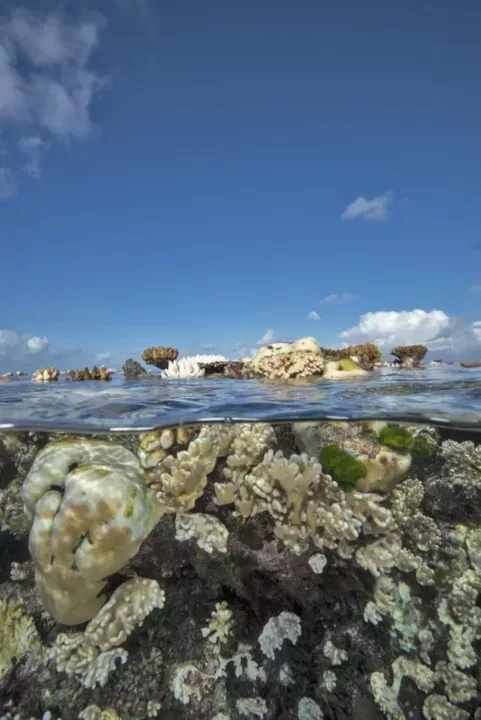The annual summary report on reef condition for the Great Barrier Reef (GBR) has resulted in a mixed bill of health- read the report here.
The GBR has been subjected to a period of intense disturbance activity in the last five years. A fourth wave of crown-of-thorns starfish, coupled with a cluster of severe tropical cyclones and major bleaching events have caused widespread coral declines on a spatial scale which is unparalleled in the history of LTMP surveys. Over the 30+ years of monitoring by AIMS, GBR reefs have shown their ability to recover after disturbances, but such ‘resilience’ clearly has limits. The predicted consequences of climate change include more powerful storms and more frequent, more intense mass coral bleaching events. More intense disturbances result in greater damage to reefs, so recovery must take longer even if the growth rate remains the same. At the same time, chronic stressors such as high turbidity, higher ocean temperatures and changing ocean chemistry can all negatively affect rates of recovery, while more frequent acute disturbances mean that the intervals for recovery are becoming shorter.
The geographic scale of recent mass coral bleaching and crown-of-thorns starfish outbreaks means that breeding populations of corals have been decimated over large areas, reducing the potential sources of larvae to recolonise reefs in the near future.
Hard coral cover in the Northern and Central GBR continues to be close to, or at, the lowest levels recorded in the 30+ years of the LTMP. Reefs in the Southern GBR have moderate hard coral cover but have limited genetic connection to reefs further north. This limits their capacity to serve as a major source of coral larvae to support reef recovery elsewhere.
The prognosis of more frequent disturbances, each causing greater damage to reefs, combined with slower rates of recovery will inevitably lead to less living coral on reefs of the GBR.
Measuring and understanding the process of coral reef recovery will be a major focus of AIMS’ research and monitoring over the next years.

